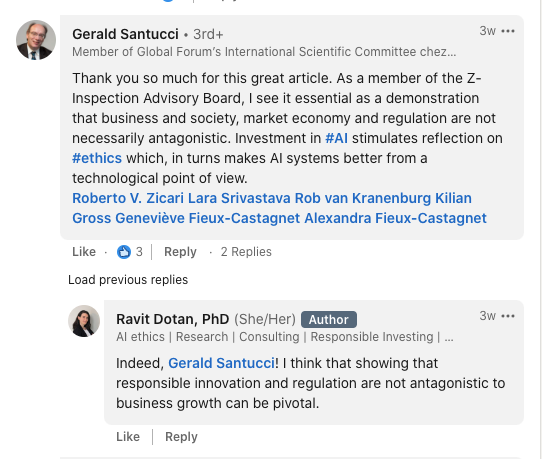Why investors in public-purpose tech should prioritise AI ethics
By Dr. Ravit Dotan, AI ethics expert
A Dutch AI system falsely accused a mother in the Netherlands of fraudulently claiming childcare benefits from the government. She was required to pay 48,000 Euros to the Dutch tax authorities and was labeled a "fraudster”. Subsequently, the mother couldn't pay her rent, lost her job, and couldn't find a new job due to her "fraudster" label.
This mother was one of up to 26,000 Dutch parents who were falsely accused of fraud by this AI system between 2012-2019, a disproportionately large number of whom were people of color. As a result of the scandal, the Dutch prime minister and the entire cabinet resigned.
What caused the scandal? A primary cause was that the AI system failed to meet the standards of responsible AI. In particular:
The AI violated fairness standards. The AI used applicants' nationality in evaluating them, flagging people with dual nationality as more likely fraudsters.
The AI violated human oversight standards. Humans did not properly review the AI's assessments before acting on them. In some cases, people were labeled as "fraudsters" for reasons as minor as forgetting to sign a form.
AI ethics can make technology serve the public better
Investors in public purpose technology should prioritise AI ethics because it increases the likelihood of the technology meeting its goals.
AI ethics is a field that aims to understand and manage the impacts of AI systems on people, society, and the environment. For example, AI ethicists articulate standards such as fairness and work to implement them in AI systems.
The Dutch childcare benefits scandal illustrates why AI ethics is crucial for meeting the goals of public purpose technology. In theory, the Dutch AI system could have been of great service to the public in the Netherlands. It could have streamlined the fraud detection process and potentially even decreased bias. In practice, however, the violation of AI ethics standards exacerbated discrimination against minorities and made mistakes that devastated families.
AI ethics can increase revenue
Another reason for investors of public-purpose technology to care about AI ethics is revenue.
To start, AI ethics is important for value creation for at least three reasons:
AI ethics improves AI systems. For example, meeting fairness standards includes ensuring the AI works well for diverse user profiles, resulting in better performance for more users.
AI ethics improves adoption. People trust more and engage more with AI systems that meet ethical standards. For example, the 2020 Economist Intelligence Unit survey reveals that 60% of organizations have already decided against working with an AI service provider due to ethical concerns.
AI ethics attracts talent. For example, after the Cambridge Analytica scandal, recruiters at Facebook reported that the acceptance rates of their job offers dropped from 85% to 35%-55%.
Moreover, AI ethics can increase revenue because it mitigates reputational and compliance risks. First, we have probably all seen how AI ethics scandals tarnish reputations. Prominent examples include COMPASS and Clearview. Second, many jurisdictions are either working on or already have AI-specific legislation pertaining to ethical aspects when it comes to compliance. The most prominent effort is the proposed EU AI Act, which is expected to pass into law in the near future.
Take-home message: AI ethics is key for public-purpose technology
AI ethics is of the utmost importance when investing in public-purpose technology that relies on AI. AI ethics can help ensure that the technology has the intended positive impact and can increase revenue.
Feedback:
Select feedback from the last post is available at the bottom of the page here. Tell us what you think about Ravit’s post here.








